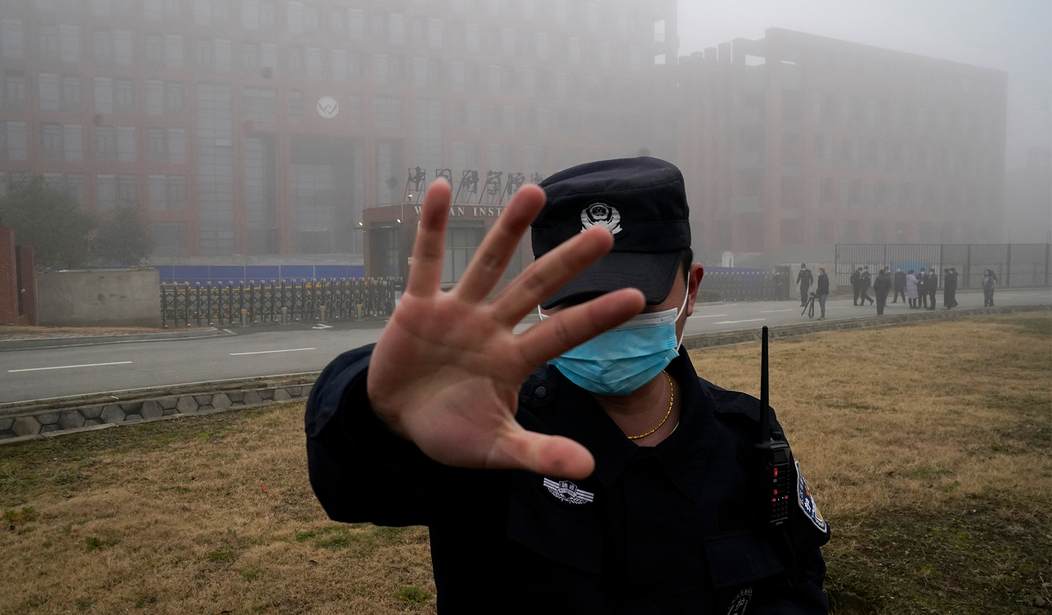What Lies in the Future for China?
China is, for most Westerners, something of an enigma wrapped in a riddle inside a gigantic potsticker. It looks great from the outside, superficially, but when you break through to see what's really inside, it gets confusing. This is a country that depends heavily on the United States and Europe buying its cheaply made products, but at the same time is making aggressive moves towards American allies in the Pacific. The nation is still ostensibly Communist, run by the Chinese Communist Party (CCP), but depends on a pretense of capitalism — it's more accurate to call it corporatism — to fuel that international trade.
At the same time, they appear to be trying to dial their military forces in, especially their navy. But there's a problem in their ambitions: While China may be able to afford the material cost of a Pacific war or a land war in Asia, they can't afford the human cost of even a minor conflict. Here's why.
China, despite their claims of a booming economy, despite their increasing aggressiveness towards their neighbors, is a mess. Their "one-child policy," which ended in 2016, has left China poised on the precipice of a demographic cliff from which they may not be able to step back. They can build the pretense of an industrial economy and a strong military — but without men to man those ships and aircraft, without people to work in their factories, this is all just a shell. So, let's look at what's in store for China, in segments.
Ambitions
China's territorial ambitions are focused on the Western Pacific, particularly on Taiwan, which the CCP considers to be a breakaway province. They regularly encroach on Taiwan's airspace and conduct aggressive military exercises in the Taiwan Strait, including one announced on Tuesday.
Maritime Safety Administration of China's eastern Zhejiang province issued a navigational warning for a "military exercises" in the East China Sea from Wednesday to Friday.
Newsweek's map shows the boundaries of the declared danger zone in the waters east of Zhejiang and south of Shanghai, however large parts of the area fall within Taiwan's air defense identification zone, or ADIZ, and roughly 11 miles from the Taiwan Strait's median line.
China's leaders claim the island as part of Chinese territory despite Taipei's repeated rejections. Beijing has employed a mixture of military, economic, and psychological pressure against the island in service of its goal of eventual unification.
But China may not be able to take Taiwan, much less the Phillippines or Japan — especially not Japan. China is making economic moves all over, but there's one problem facing China that may slam the door on all their expansionist ambitions: People.
Demographics
China, in another generation, maybe two, will fall off a demographic cliff.
War, or even quasi-military expansionism, requires young men. Despite the claims of the DEI crowd, despite the increasing reliance on high tech, taking and holding territory requires fit, tough young men with rifles to stand on the ground the tanks and aircraft have taken. And China's birth rate is cratering. There are, every year, fewer of those young men who will carry those rifles forward. There is a motivational factor, as well; young men will fight for a perceived future in which they have hopes for a family, children, a home, a comfortable life; China is not offering those. China's people rely heavily on younger generations within the family structure to support the older generations, and that increases the problem presented by demographics.
Family Structures and Traditions
Family is one of the strongest societal structures in China.
The family unit is considered to be one of the most central institutions. For many, their family provides them with a sense of identity and a strong network of support. In China, the family is largely understood through Confucian thought. In Confucian thinking, the family contains the most important relationships for individuals and forms the foundations of all social organisation. For instance, the roles of husband and wife, parent and child, elder brother and younger brother are clearly defined. A husband/father is expected to exhibit dominance and kindness to his wife in return for obedience and love, and offer guidance and protection to his children in return for respect and obedience.
Confucian roles are not strictly adhered to anymore. Nevertheless, children are still expected to obey their parents and honour their elders. This is in accordance with filial piety, the Confucian tenet that stresses the importance of age. For example, in most regions of China, the entire family is expected to consult family elders on big decisions. Moreover, children are expected to care for their parents as they age. Sending elderly parents to an aged care facility is considered shameful.
Consider what that means to a nation engaged in a major war — or even a series of smaller expansionary campaigns. Previous generations, with larger families, had sons to spare in war; the old standard of "an heir and a spare" was often backed up by two or three more male offspring. But major wars are still devastating to families, especially in small communities. My mother used to tell the tale of how she graduated high school in 1944, part of a farm country class with three other girls and eight boys. By the first anniversary of their graduation, four of the eight boys were dead — two in the Pacific, two in Europe. War is hard on young men, who are, of course, the primary combatants.
China is a nation in which families, who are heavily dependent on younger generations to care for the older ones, have no offspring to spare. Losing one son in China now means the end of a family line — which matters in China.
This hasn't stopped China — yet — from becoming ever more aggressive. Yet.
See Related: Clear and Present Danger: China Buying Up Hundreds of Thousands of Acres Near US Military Bases
Taiwan Attempting to Build Drone Army to Fend Off China - but Can They Do It?
Adaptations
China can't overcome many of these issues. Not under the system they have in place. So much of China's vaunted economic and military might is based on deception and outright fakery, as YouTuber serpentza, who lived in China for 14 years, has endlessly documented.
China is beset with these problems. They have a navy that looks great on paper but (so far) lacks any ability to project power, and China's military has not engaged in a conflict greater than a scuffle in decades. Much of their economy is based on the production of cheap goods that, when bought by Americans and Europeans who realize they are junk, are priced exactly at the point where it's easier for buyers just to chuck the products in the trash than to go to the trouble of returning them. But their greatest trouble remains demographic, and there is a line beyond which China cannot make up the lack with technology — not their strong suit in any case — but if current trends continue, China may not be able to maintain itself as a coherent nation-state.
Conclusions
China is not altogether a paper tiger. They still have an impressive navy and air force that can easily control their borders and project power to nearby nations, like Taiwan and the Phillippines. They still have nuclear weapons on intercontinental ballistic missiles and possibly other platforms, and one should never underestimate what desperate leaders of an economically failing and structurally disintegrating nation may choose to do with those weapons.
But they may yet be able to wrest strategic control of the Pacific from the United States. If they do, however, it will not be the result of any economic or military might on the part of China. No, it will be due to apathy on the part of the West and the deterioration of the United States military.
China's demographic issues will remain, though, regardless of any success or failures in the military sphere. A generation — maybe two — may well see the end of China as a nation, perhaps even as a culture. The Middle Kingdom may return to what it was in the past: a group of satrapies and regional fiefdoms. That won't be good for the Chinese people or their neighbors; it won't be good for the global economy. But China's demographic crisis, started by their one-child plan, fueled by decades of totalitarian rule and economic fakery, may have made it inevitable.















